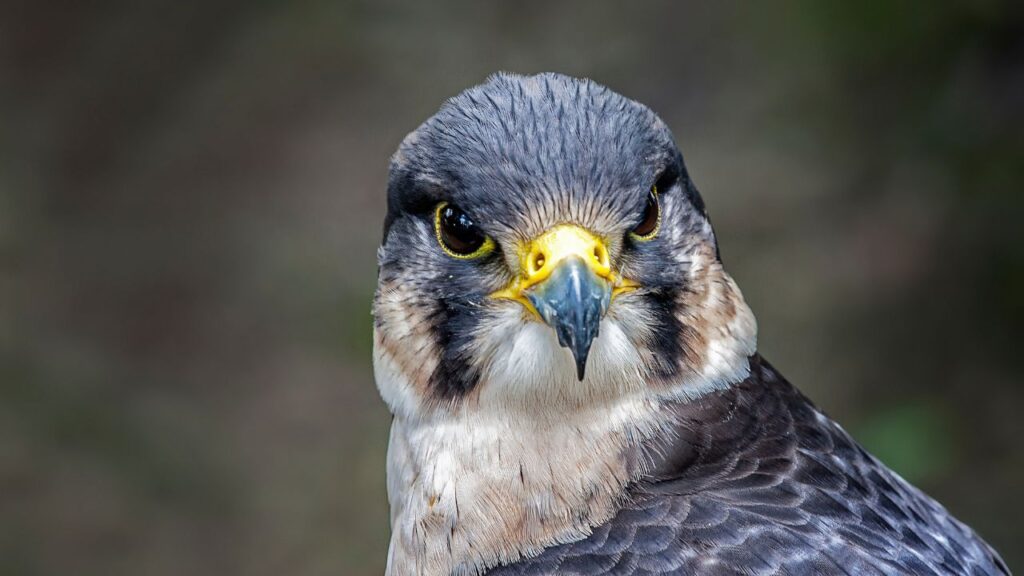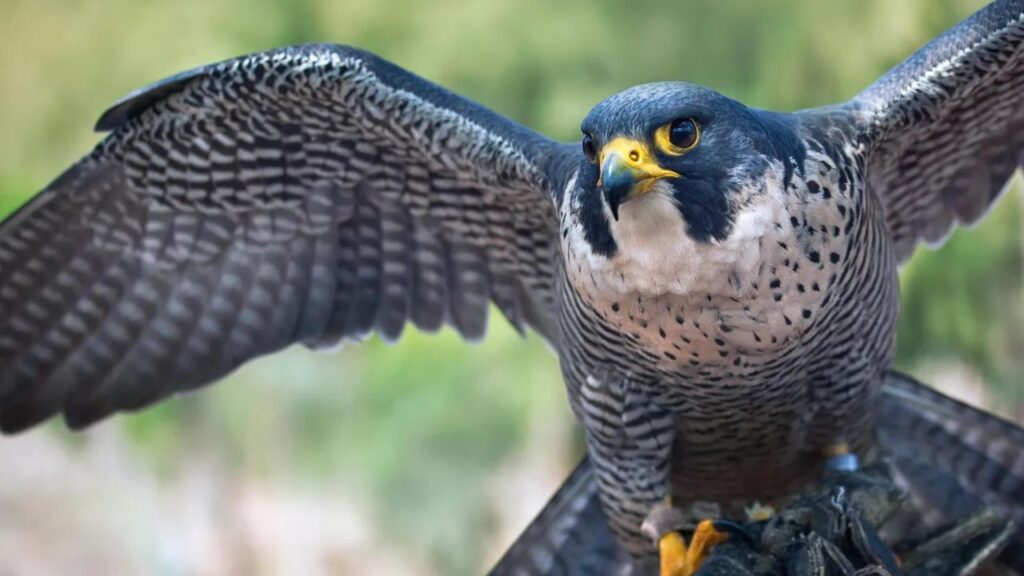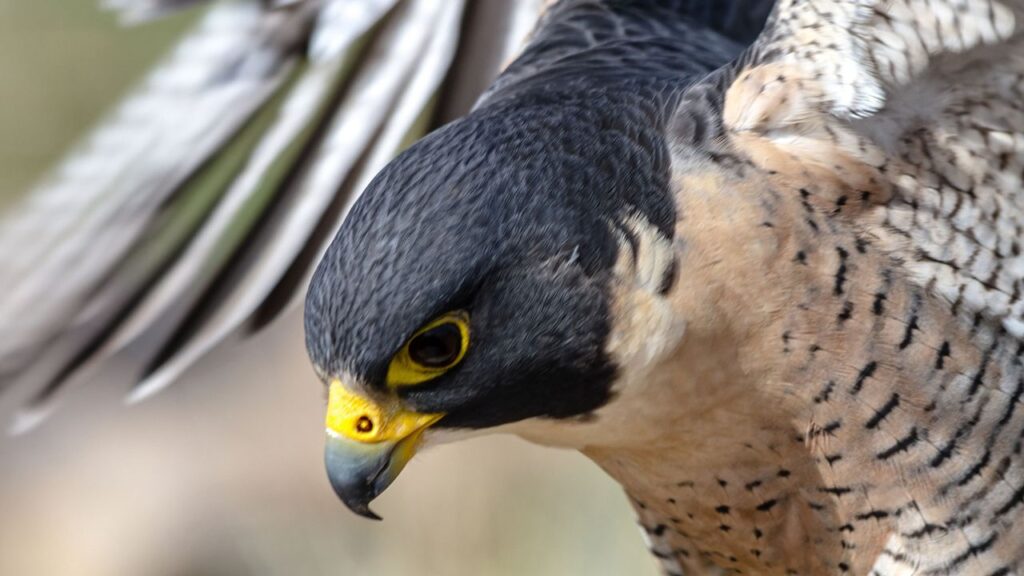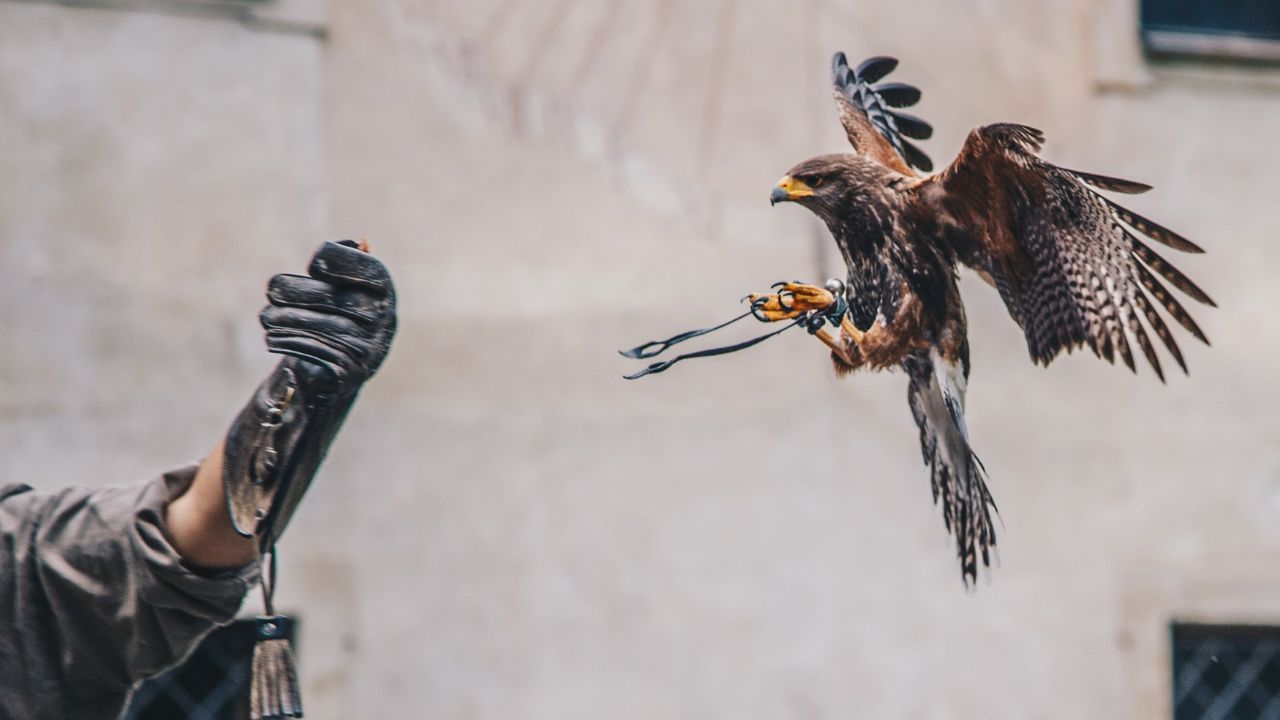Do Falcons Attack Humans? Falcons rarely attack humans unless they feel threatened or their nests are disturbed.
Falcons are known for their incredible speed, agility, and hunting prowess. These majestic birds of prey have fascinated humans for centuries, appearing in various cultures and myths as symbols of power and freedom.
However, there’s a common question that often arises: do falcons attack humans?
Understanding falcon behavior towards humans is crucial, especially for those who live near falcon habitats or enjoy outdoor activities such as hiking and bird watching.
This article delves into the behavior of falcons, the reasons they might attack humans, and how to avoid and handle such encounters.
Contents
Who Are Falcons?
Overview of Falcons
Falcons are a part of the Falconidae family, which includes around 40 species of birds of prey.
These birds are known for their exceptional hunting skills, characterized by their speed and precision.
Falcons can be found all over the world, from the Arctic tundra to tropical rainforests, showcasing their adaptability to various environments.
Their presence in diverse ecosystems underscores their resilience and importance in maintaining ecological balance.
Species Diversity
Some well-known species of falcons include the peregrine falcon, the fastest bird in the world, capable of reaching speeds over 200 miles per hour during its hunting stoop (dive).
This remarkable speed allows them to catch prey mid-air, making them formidable hunters.
Other notable species are the gyrfalcon, which is the largest falcon and thrives in Arctic regions, and the kestrel, known for its ability to hover mid-air while hunting.
Each species has adapted uniquely to its environment, displaying a range of sizes, colors, and behaviors. [Do Falcons Attack Humans?]
Physical Characteristics
Falcons possess several physical traits that make them formidable hunters. They have sharp, hooked beaks designed for tearing flesh and powerful talons to grip and kill their prey.
Their keen eyesight allows them to spot potential prey from great distances, and their streamlined bodies enable them to fly at high speeds and perform agile maneuvers in the air.
The combination of their muscular build, acute vision, and aerodynamic form makes them one of nature’s most efficient predators.

Do Falcons Attack Humans?
General Behavior
Falcons generally avoid humans. These birds are wary of people and tend to keep their distance, preferring to focus on hunting smaller animals such as birds, rodents, and insects.
Falcons have a natural fear of humans, which stems from our size and perceived threat. [Do Falcons Attack Humans?]
Their interactions with humans are usually limited to observing from a distance or occasional curious glances.
Rare Instances of Attacks
While falcon attacks on humans are extremely rare, they do happen occasionally. Most reported cases involve humans inadvertently approaching falcon nests.
Falcons are highly territorial, especially during the breeding season, and will defend their nests vigorously.
In such situations, falcons may exhibit aggressive behaviors such as diving and swooping at intruders.
These behaviors are primarily meant to scare off potential threats rather than cause harm.
Territorial Nature
Falcons are particularly protective of their nesting sites. They choose high, inaccessible places such as cliff ledges, tall trees, or even skyscrapers in urban areas.
During the breeding season, which typically occurs in the spring, falcons become more aggressive to protect their eggs and chicks.
This territorial behavior is a natural instinct to ensure the survival of their offspring. [Do Falcons Attack Humans?]
Urban areas, in particular, have seen an increase in falcon populations due to the availability of high nesting sites and abundant prey, leading to more frequent human-falcon interactions.
Examples of Falcon Attacks
Documented cases of falcon attacks often involve researchers or bird enthusiasts who get too close to nesting sites.
In one instance, a peregrine falcon in Chicago was reported to have repeatedly dive-bombed a maintenance worker who unknowingly approached its nest on a high-rise building.
These attacks are usually meant to scare off the intruder rather than cause serious harm. [Do Falcons Attack Humans?]
Another case involved a photographer in the UK who was attacked while trying to capture images of a nesting pair, highlighting the need for caution and respect around falcon habitats.
See Also: Do Eagles Attack Humans? Unraveling the Mystery!

Reasons for Falcon Attacks
Nesting Defense
The primary reason falcons attack humans is to defend their nests. Falcons see any intrusion near their nesting area as a potential threat to their young.
This defensive behavior is most pronounced during the breeding season when they are more vigilant and protective.
The instinct to protect their offspring is strong, driving them to confront much larger threats, including humans, to ensure the safety of their chicks.
Territorial Instincts
In addition to protecting their nests, falcons are also territorial about their hunting grounds.
They may become aggressive if they perceive humans as intruders in their territory, especially if food resources are scarce.
This behavior ensures that they have enough prey to feed themselves and their chicks. [Do Falcons Attack Humans?]
Falcons’ territories are marked by their presence and regular patrolling flights, making it important for humans to recognize and respect these areas.
Provoked Situations
Falcons may also attack if they feel directly threatened or provoked. This can happen if a person handles a falcon improperly or tries to capture one.
Trained falcons used in falconry can sometimes exhibit aggressive behavior if they are not treated with respect and care.
Even well-trained birds retain their wild instincts, and any perceived threat can trigger defensive actions.
It’s crucial for handlers and enthusiasts to understand and respect the natural behaviors of these birds to prevent provoked attacks.

How to Avoid Falcon Attacks
Respecting Falcon Territory
To avoid conflicts with falcons, it’s important to respect their territory.
When hiking or bird watching, be aware of your surroundings and look for signs of falcon nests, such as high-pitched calls or the presence of adult birds flying nearby.
If you spot a nest, keep a safe distance and avoid making loud noises or sudden movements. [Do Falcons Attack Humans?]
Educating the public about falcon nesting habits and encouraging respect for their habitats can significantly reduce human-falcon conflicts.
Behavioral Tips
If you find yourself in an area with active falcon nests, try to move calmly and steadily. Avoid staring directly at the birds, as this can be seen as a threat.
Wearing a hat or using an umbrella can provide some protection if a falcon decides to swoop down near you.
Additionally, avoid using flash photography or bright lights near nesting sites, as these can startle and agitate the birds.
Protective Measures
For those who work in areas with known falcon nests, such as maintenance workers or researchers, it’s advisable to wear protective gear such as helmets and gloves.
Carrying a walking stick can also help to keep falcons at a distance. If a falcon appears agitated, back away slowly without turning your back to the bird.
Employers should also provide training on how to recognize and respond to aggressive falcon behavior to ensure worker safety.
What to Do if Attacked by a Falcon
Immediate Actions
If a falcon attacks, the most important thing is to remain calm. [Do Falcons Attack Humans?]
Do not run, as this can provoke further attacks. Instead, make yourself appear larger by raising your arms and making noise to scare the bird away.
Back away slowly and try to find shelter. Covering your head and face with your arms or clothing can protect vulnerable areas from talon strikes.
Post-Attack Care
In the event of an injury, seek medical attention immediately. [Do Falcons Attack Humans?]
Falcon talons and beaks can cause deep cuts and puncture wounds, which may require professional cleaning and treatment to prevent infection.
It’s also important to report the incident to local wildlife authorities. Keeping a first aid kit with antiseptic wipes and bandages can be useful for immediate treatment of minor injuries.
Legal Considerations
Falcons are protected by law in many countries, including the United States, where they are covered under the Migratory Bird Treaty Act.
It is illegal to harm or kill a falcon, even in self-defense. Understanding these legal protections can help avoid legal repercussions.
Reporting aggressive behavior to wildlife authorities can also help them monitor and manage falcon populations, ensuring both human safety and bird conservation.
FAQs
Can falcons kill humans?
No, falcons cannot kill humans. While their talons and beaks are capable of causing serious injuries, there are no recorded instances of falcons killing a human. Attacks are usually defensive and not intended to cause fatal harm. The primary goal of a falcon’s attack is to deter and scare off perceived threats, not to inflict lethal damage.
How can you identify a falcon’s nesting area?
Falcon nests are often located in high, inaccessible places such as cliff ledges, tall trees, or man-made structures like buildings and bridges. Signs of a nesting area include frequent sightings of adult falcons, high-pitched calls, and the presence of whitewash (bird droppings) on the ground below the nest. Observing these signs from a distance with binoculars can help identify nests without disturbing the birds.
What should you do if you find a falcon’s nest?
If you discover a falcon’s nest, keep your distance and do not disturb it. Avoid making loud noises or sudden movements, and inform local wildlife authorities if necessary. Observing from a safe distance with binoculars is a good way to enjoy watching falcons without causing them stress. Reporting nest locations to conservation groups can also help protect these sites from accidental disturbance.
Are falcons more aggressive during certain seasons?
Yes, falcons are more aggressive during the breeding season, which typically occurs in the spring. During this time, they are highly protective of their nests and young, leading to increased territorial and defensive behaviors. Recognizing the breeding season and adjusting outdoor activities accordingly can minimize the risk of encountering aggressive falcons.
What are common signs that a falcon is agitated?
Signs that a falcon is agitated include high-pitched calls, dive-bombing or swooping near your head, and puffing up their feathers to appear larger. If you notice these behaviors, it’s best to slowly and calmly leave the area to avoid provoking an attack. Watching for these warning signs and responding appropriately that is to back away slowly and calmly without turning your back to the bird. Running can incite further aggression as falcons are more likely to attack moving targets. If you have a bag or jacket, use it to shield your head and face, as these are the areas falcons target.
Conclusion: Do Falcons Attack Humans?
Understanding falcon behavior towards humans is essential for coexisting peacefully with these magnificent birds of prey.
While falcon attacks on humans are rare, respecting their territory and knowing how to react in the presence of an agitated falcon can prevent conflicts and ensure both human and bird safety.
By appreciating and protecting falcons, we contribute to the conservation of these incredible creatures and their vital role in the ecosystem.
Awareness and education about falcon habits and behaviors can foster a greater appreciation for these birds and encourage responsible interaction with wildlife.

Hello, I am Rosa Ellis, a mother of two and a wildlife blogger. I grew up in New York City, but I love exploring forests. I’ve traveled to places like Yellowstone National Park and the Amazon Rainforest to see animals up close. I know a lot about animal behavior and which animals can be dangerous to humans. Thanks for visiting my blog!

